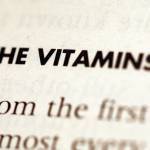Measurement of Serum Vitamin E Concentration in Clinical Cases

Measurement of serum vitamin E concentrations is used for the diagnosis of diseases associated with vitamin E deficiency as well as for other conditions that respond to vitamin E supplementation. Several studies have shown that serum vitamin E concentrations can fluctuate, especially in deficient horses. Most diagnostic laboratories accept a serum vitamin E concentration of 2 µg/ml or greater as indicative of adequate dietary vitamin E intake.
In a study of horses with clinical signs of vitamin E deficiency, Vanschandevijl and coworkers investigated the diagnostic value of measuring serum vitamin E concentration to assess vitamin E status. A single measurement of serum vitamin E concentration and a result indicating vitamin E deficiency had an 85% chance of identifying horses that were truly deficient in vitamin E. A single measurement of serum vitamin E concentration and a result of normal vitamin E concentration had a 90% chance of identifying horses that were truly not deficient in vitamin E.
Many equine diseases such as equine motor neuron disease (EMND), equine degenerative myelopathy (EDM), neuroaxonal dystrophy (NAD), and nutritional myodegeneration have been associated with deficient serum vitamin E (alpha-tocopherol) concentrations and are responsive to vitamin E supplementation.
In an experimental model of EMND in which horses were fed a diet deficient in vitamin E, half of the horses developed clinical signs of EMND and all of the horses had serum vitamin E concentrations below the expected normal range.
Equine degenerative myelopathy is a hereditary neurologic disease exacerbated by dietary vitamin E deficiency. In a field study, foals affected with EDM had significantly lower plasma alpha-tocopherol concentrations than foals that were sired by an unaffected stallion.
Neuroaxonal dystrophy is similar to EDM and a study on a breeding farm demonstrated deficient serum vitamin E concentrations in 93% of NAD affected horses that were sampled.
Supplementation of natural (d-alpha-tocopherol) water-soluble vitamin E has been shown to significantly increase vitamin E concentrations in both serum and cerebrospinal fluid. Horses supplemented with 2 to 20 times their vitamin E requirement for 10 days had an approximate two- to fourfold increase in their serum vitamin E concentrations, respectively.
There is good correlation between muscle and serum vitamin E concentrations, and supplementation increased both serum and muscle concentrations in horses deficient in vitamin E.
Vanschandevijl, K., H. Nollet, P. Deprez, et al. 2008. Variation in deficient vitamin E levels and impact on assessment of the vitamin E status in horses. Vlaams Diergeneeskundig Tijdschrift 78:28-33.








